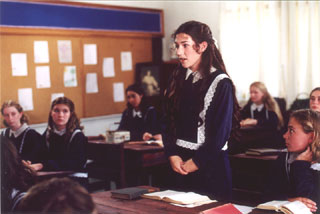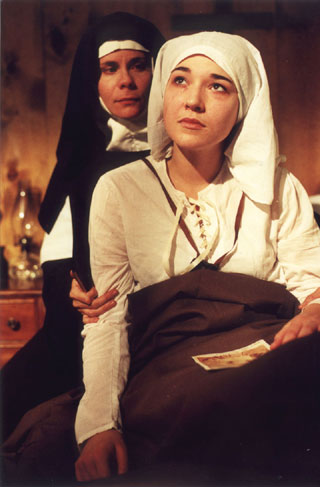Therese: The Story of Saint Therese de Lisieux


It's hard to say bad things about a film with such good intentions, and Therese: The Story of Saint Therese de Lisieux is one of those films. It's even harder to say bad things about a film made by nuns. Therese is a biographical film about Saint Therese de Lisieux (1873-1897), the famous Carmelite nun whose autobiography told about her "little way" of worshipping God, and died very young. Throughout the years, she has inspired many people. The film Therese is good enough for Sunday School. This film will appeal most likely to Catholics because they can see on screen what people have told them for years. For everybody else, it will be a gentle bore.
If religious films want to appeal to the general public, they need to pass two tests. The first is that they cannot come off as preachy. Unfortunately, many Christian films fail this test miserably. Second, they need to be able to convey to the secular audience how much the characters in the film love God. They do not need to convince the audience of this, they just need the audience to believe that the characters act a certain way. Therese does not quite get this far. Patti Defillipis, who adapted the autobiography, makes it clear that Therese loves God, but only people who will be able to understand or relate to it are Christians.
Therese's (Lindsay Younce) mother died when she was young, and she was raised by her father (Leonardo Defillipis, who also directed) and her sisters. During this period, it was normal for women to become nuns, and one by one, her sisters entered nunneries. At the age of fourteen, Therese desperately wanted to become a nun, and after her amazing efforts, was allowed to join her older sister. Therese then recounts some of her experiences, most of which seem to be pretty mundane. Therese slowly caught tuberculosis and died.
That's pretty much all of the film. Given the lack of experience by everybody in front of and behind the camera, Therese comes off relatively well. The Defillipis' do need to work more on character development. They fail to provide a good reason why people should empathize with Therese, other than this is a true story. It is up to Younce to carry the film, and she doesn't fare that well. Her performance, working from a thin script, is pretty hollow, and she comes very close at times to hamming it up. Even more distracting is that under certain lighting, it looks like she needs a shave.